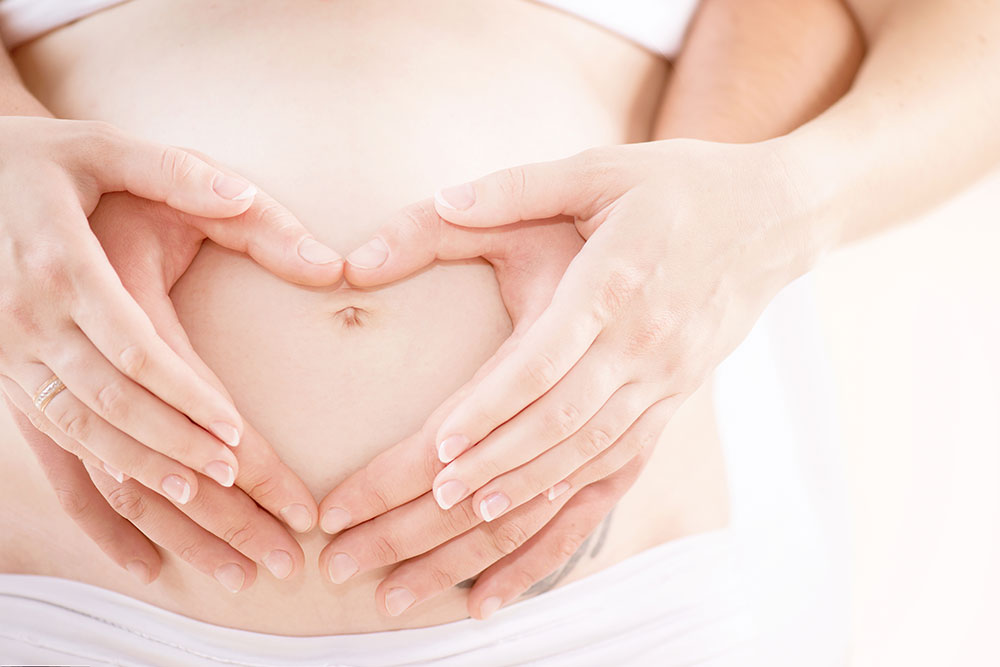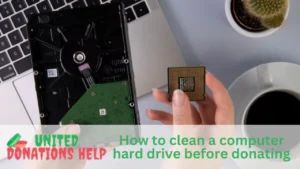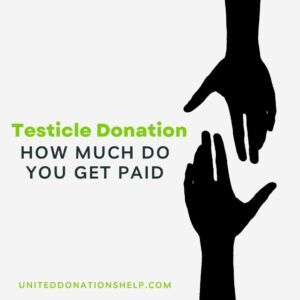Become an Egg Donor egg donation near me – The Egg Donation is the anonymous, altruistic, and disinterested delivery of eggs from one woman to another so that the latter can have a child. Today, about 20% of couples have difficulties having children and must resort to assisted reproductive techniques in order to be parents. In some cases, semen and donor eggs are essential to achieve a pregnancy. Being an egg donor you will help fulfill the dream of many people.
So, if you want to be a donor, and you meet these requirements :
- Be between 18 and 35 years old.
- Good physical and mental health.
- Have no history of hereditary diseases.
In a first free consultation, our doctors will carry out a detailed medical history: A medical examination with a complete gynecological review. A genetic study. And they will explain, in detail, what egg donation consists of and the steps of the procedure.
WHAT IS THE EGG DONATION PROCESS LIKE?
The first thing done is an ovarian stimulation to help the ovaries mature. Those mature eggs will be removed and donated to the recipient women. Ovarian stimulation consists of a hormonal treatment that can be administered at home subcutaneously for about 10-12 days. The doctor will explain what dose is appropriate and how to administer it so that you can do it without problems and easily.
During the ovarian stimulation process, the specialist will monitor you through different medical tests such as transvaginal ultrasound and hormonal tests, which are usually done very frequently to ensure the effectiveness of the treatment.
Once the gynecologist decides that the time has come to remove the eggs (when it is considered that the ovarian follicles can harbor a mature egg), the removal is scheduled, which is performed under light sedation. It is a simple intervention that will allow you to return home in about two or three hours.
WHAT ARE THE RISKS OF EGG DONATION?
The process is generally well tolerated and Ovarian Hyperstimulation Syndrome (OHSS) can only occur exceptionally, which consists of an exaggerated response to treatment and which is something today with the treatment protocols used that occurs in an exceptional way. Other problems described are infection, hemoperitoneum, or ovarian torsion, which also rarely occur.
IS THERE ANY COMPENSATION FOR EGG DONATION?
Each donor receives compensation for the inconvenience caused, which is set by the Ministry of Health, Social Services and Equality, following the recommendations of the National Commission for Assisted Human Reproduction. The altruistic act of donating eggs gives the donor great personal satisfaction for feeling useful in helping others.
Although there are more and more women who choose to donate their eggs, it is usual that before undergoing this procedure, doubts and questions arise, and also many uncertainties.
These are the answers to the questions that most concern future donors:
Who can be an egg donor?
All legal and/or bureaucratic aspects regarding egg donation are included in Royal Decree 412/1996, which also includes the necessary requirements that donors must meet:
- be between the ages of 18 and 34;
- be in good physical and mental health (which is determined by tests);
- sign the corresponding documentation (informed consent),
- and have the legal capacity to grant your authorization.
Most centers and clinics specialized in assisted reproductive treatments have egg banks in which those interested can register. Before starting a procedure in which donor eggs will be used, the specialists of these centers make a selection among the women registered in these banks looking for those with characteristics that are as similar as possible to those of the recipient of the eggs.
What tests do I have to undergo if I want to be a donor?
The general protocol of tests carried out, in this case, consists of a medical study (complete personal and family medical history), blood tests, karyotype (genetic and chromosomal studies), complete gynecological review (cytology, ultrasound, breast examination … ) and a psychological evaluation. All these tests are free for the donor, as they are covered by the center.
How long does the treatment cycle last before egg donation?
The duration of the complete process can last between 40 and 60 days from the first visit to the clinic in which the procedure is to be carried out. The treatment cycle itself, which is ovarian stimulation, lasts between 8 and 12 days, during which you will have to undergo a subcutaneous hormonal treatment (with injections such as insulin) that you can apply yourself at home.
If I use any contraceptive method, can I be a donor?
It depends on the contraceptive used. In the case of oral contraceptives (pill), taking them regularly is not a problem, but this method should be abandoned during the course of treatment. In the case of the IUD, it is not necessary to remove it to be able to do the donation cycle, unless they are devices that release hormones, in which case they must be removed since they can interfere in the process. And the same for the subdermal contraceptive implant, because it releases hormones at low doses, you have to remove it and wait at least a month before starting the cycle.
How is the egg retrieval performed?
The day that specialists foresee ovulation to occur, you will be summoned to the clinic for the extraction of the ovules, which is carried out by means of an ovarian or follicular puncture. It is a simple intervention, which is performed in the operating room and lasts approximately between 15 and 30 minutes.
Is the process painful? Are there risks?
During the process of ovarian stimulation some discomfort (never pain) and swelling sensation, similar to that of premenstrual syndrome, may be experienced. During this time, you should avoid having sexual relations and never without protection. The puncture is performed with sedation, so it is not painful. As for the risks, they are infrequent and vary in intensity; They can range from slight discomfort during stimulation, to bleeding that must be treated with laparoscopy, to ovarian hyperstimulation that requires rest for a few days; Complications rarely occur, but in any case, they are all included in the informed consent that you must read and sign before starting treatment.
Do I have to rest? Do I have to follow any recommendations the days after the donation?
After the puncture, a 2-3-hour rest in the clinic is usually recommended (no hospital admission necessary) and quiet life (avoid playing sports) 5-6 days after the puncture. It is also recommended to avoid sexual intercourse the days before and after the egg retrieval. Otherwise, you can live a totally normal life.
How many times can I donate eggs?
As stated in the Spanish legislation on assisted reproduction (Law 14/2006), the maximum number of children that can be born in our country from the eggs of the same donor is 6, regardless of whether the donation has been made in the same or in different assisted reproduction clinics.
Will I have a fertility problem when I want to have children of my own because I was a donor?
Not at all: egg donation does not affect future fertility and does not deplete the ovarian reserve that every woman has from birth.
Will I be able to meet the recipient’s mother? And the child born from my eggs?
in the USA the donation is anonymous and the donor’s personal data and identity are confidential, which means that there can be no link or contact between the woman who donates the eggs and the recipient of the same. For the same reason, babies born using these techniques will not be able to meet the donor nor will she have contact with these children.
Can egg donation affect my future fertility?
Egg donation does not affect your future fertility at all. Naturally, in each cycle, hundreds of oocytes are lost since only one matures and becomes an ovule with the ability to be fertilized. The hormonal treatment that is carried out in the donation of ovules consists of the maturation of a greater number of oocytes that would otherwise be lost. In addition, the gynecological review that is carried out before treatment is very complete and allows detecting any alteration that would otherwise go unnoticed.
Is there financial compensation for donating eggs?
You may be wondering how much you pay to donate eggs or what the price of donating eggs is. It is important to clarify that egg donation will never be commercial. Financial compensation for the inconvenience, travel expenses, and time spent is contemplated, although the criteria may vary according to current legislation. Approximately, the financial compensation is: In the USA between $ 10,000 and $ 15,000
Can I have sex during the process?
You should not have unprotected sex until the next menstruation after donation and avoid them the days before and after the extraction of the eggs due to the risk of ovarian torsion. Following the instructions of the medical team at all times, you preserve your health, the health of the eggs and avoid the risk of multiple pregnancies.
How long does the egg donation process take?
In general (as it depends on the protocol used by each clinic or center) we can say that the total time from when you come into contact with the clinic until the donation occurs can be up to 60 days. Within these 60 days are included the 14 days that the ovarian stimulation usually lasts and in which you will have to visit the clinic 5 to 7 times.
Can you donate eggs while breastfeeding?
If you are breastfeeding (breastfeeding) you cannot donate eggs . Hormone-disrupting hormones are used to treat egg donation and can also pass to the baby through breast milk. If you want to donate eggs, you must wait to finish breastfeeding .




